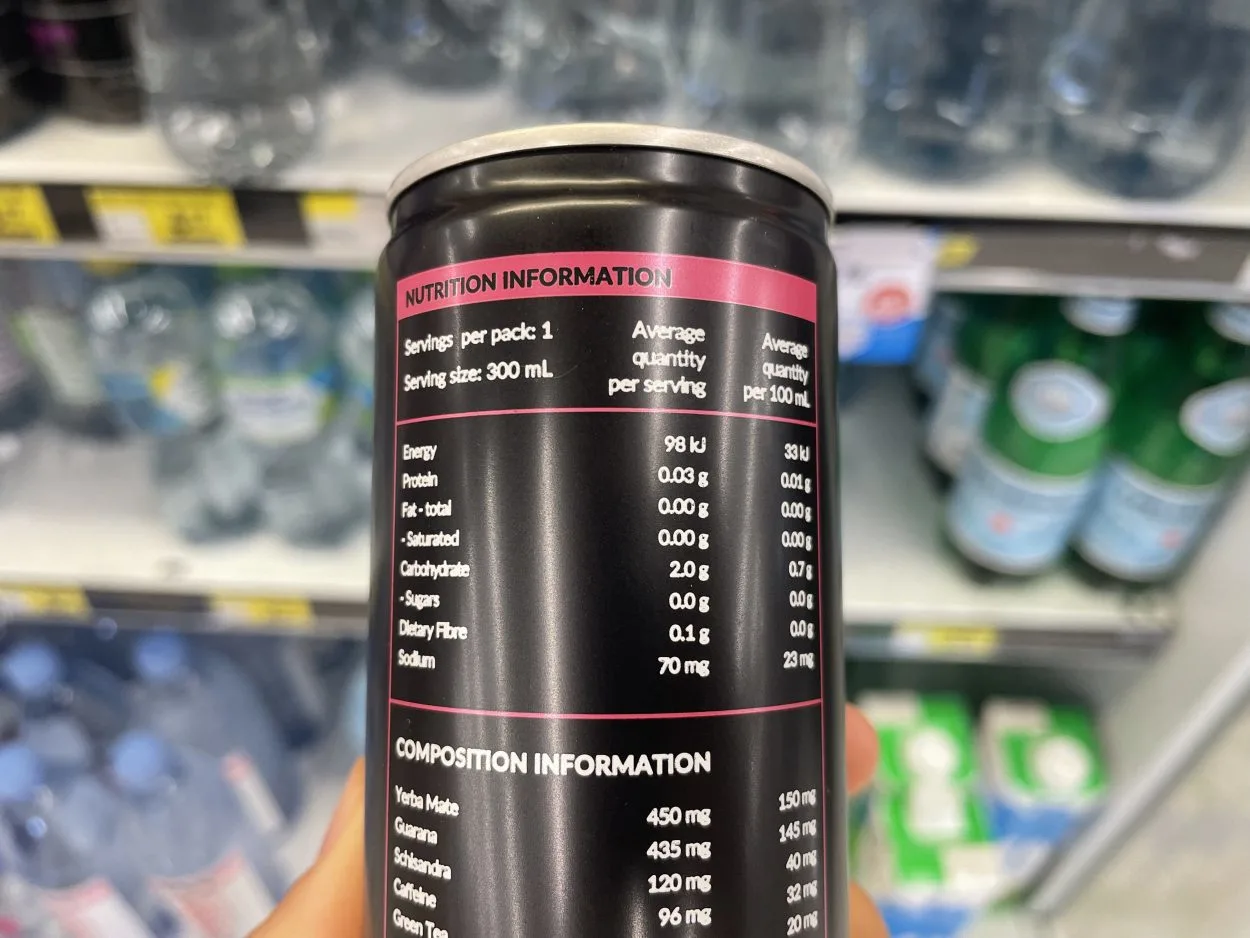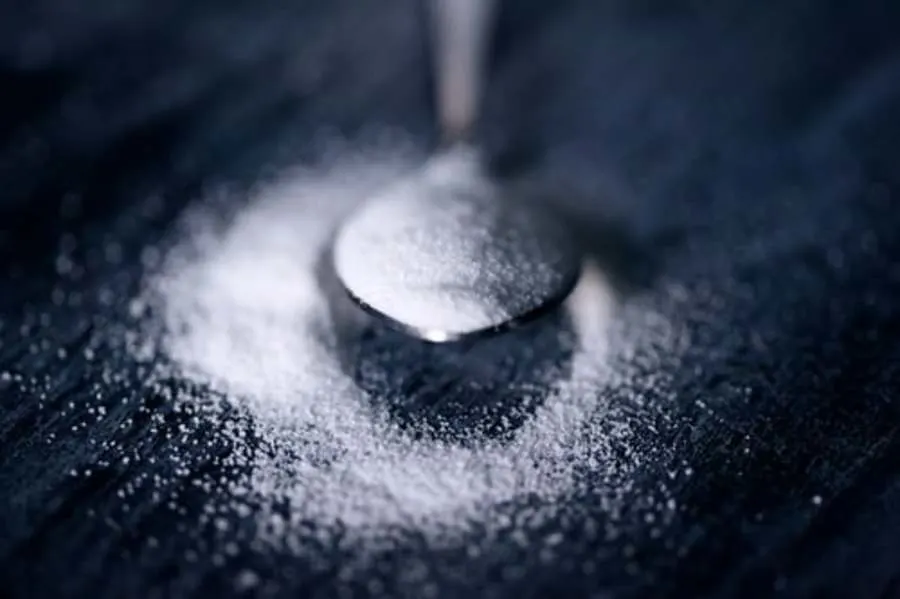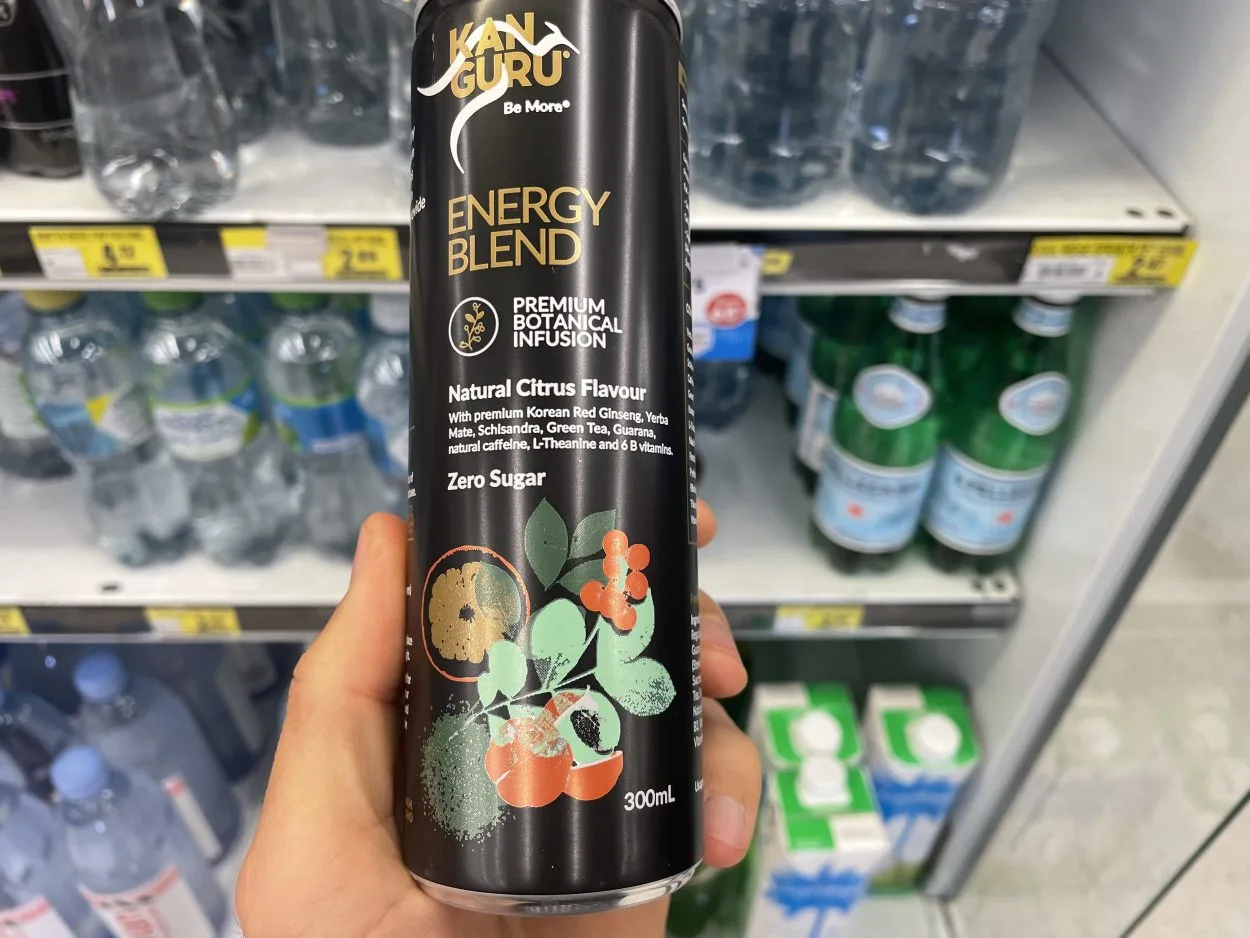Despite Kanguru energy drink having typical flavors and ingredients, there can be no denying the fact that it is taking over the market by storm. It has had a very successful launch, to say the least.
In just six months following its release, the blend of the brand has now been nominated for two international medals, indicating its worldwide recognition. At the rate it’s growing, I wouldn’t be surprised if Kanguru would knock some well-loved brands off their thrones.
When you like to consume caffeine in moderation and are not a caffeine junkie then I’d say, Kanguru Energy is the right choice for you.
But is it bad for you?
Quick Answer: You are safe as long as you take Kanguru Energy in moderation. The drink is sugar-free and contains only 96 mg of caffeine and 23 calories.
This amount of caffeine seems very meager when compared to heavy-hitters like BreinFuel or Celsius-on-the-Go. In my opinion, it is just the right amount of caffeine I need to start off my day without worrying about whether or not ill be having a heart attack in the near future.
In this article, you’ll know more about the Kanguru Energy Drink and see if it is suitable for you or not!
Let’s get started.
Contents
Ingredients In Kanguru Energy
The following ingredients make up Kanguru Energy:
- Carbonated Water
- Xylitol
- Acidic Regulators (Citric Acid, Sodium Citrate)
- Natural Flavours
- Yerba Mate
- Guarana
- Natural Colour (Anthocyanin)
- Schisandra
- Sweeteners (Steviol Glycosides Acesulfame Potassium, Sucralose)
- Preservative (Sodium Bezonate)
- Green Tea
- Stabiliser (Xanthan Gum)
- Korean Red Ginseng
- L-Theanine
- Vitamin B1
- Vitamin B2
- Vitamin B3
- Vitamin B6
- Vitamin B12
Nutrients In Kanguru Energy
Now let’s examine the nutrients in Kanguru Energy:

| Nutrient | Amount per Serving |
| Energy | 98kj |
| Protein | 0.03g |
| Fat | 0.00g |
| Saturated | 0.00g |
| Carbohydrate | 2.0g |
| Sugar | 0.0g |
| Dietary Fibre | 0.1g |
| Sodium | 70mg |
| Blend Composition | |
| Yerba Mate | 450mg |
| Guarana | 435mg |
| Schisandra | 120mg |
| Caffeine | 96mg |
| Green Tea | 60mg |
| Korean Red Ginseng | 36mg |
| L-Theanine | 15mg |
| Niacin (Vit B3) | 9mg |
| Pantothenic acid (Vit B5) | 3mg |
| Pyridoxine (Vit B6) | 0.99mg |
| Riboflavin (Vit B2) | 0.72mg |
| Thiamine (Vit B1) | 0.69mg |
| Vitamin B12 | 4.2μg |
Caffeine Content Of Kanguru Energy
Each can of Kanguru contains 96 mg of caffeine.
That’s the equivalent of a cup of coffee, which comes with a moderate amount of caffeine. So instead of a cup of coffee in the morning, you could just opt for Kanguru, that is if you fancy the flavor of course!
Kanguru Energy is a suitable option for anyone who does not like excessive amounts of caffeine. It’ll give you a decent energy boost, but nothing too crazy and of course, low chances of negative side effects too.
According to FDA recommendations, a healthy adult should consume no more than 400mg of caffeine every day. Kanguru is miles below that limit, so you can even choose to have another can if you’re used to lots of caffeine.
You can benefit from drinking caffeine since it provides several health benefits:
- Weight Loss
- Increased Alertness
- Enhanced Sports Performance
- Improved Memory
- Reduced Risk of Type 2 Diabetes
Even though caffeine has numerous health benefits, it should still be consumed in moderation, as too much caffeine can cause medical issues such as:
- Dehydration
- Anxiety
- Irregular Heart Rate
- High Blood Pressure
- Dizziness
- Restlessness
- Headaches
- Insomnia
- Digestive Issues
Sugar Content Of Kanguru Energy
There is no added sugar in Kanguru Energy.
The recommended daily sugar intake for a female is 25g (6 teaspoons), and for a male is 36g (9 teaspoons).
Kanguru Energy does not contain any sugar and will not increase your blood sugar levels or increase your daily calorie intake since it is sugar-free. Therefore it’s a great choice for people with diabetes or those who are diet-conscious.
The following health benefits can be gained from consuming less sugar:
- Better skin
- Better sleep
- Higher energy levels
- Boost immune system
- Weight loss
- Improved gut health
Artificial Sweetener In Kanguru Energy
So you might be wondering how Kanguru gets its sweetness if it doesn’t use any sugar. Well, the answer is that the brand uses a blend of sweeteners called Sucralose and Acesulfame K.
The artificial sweetener sucralose, which has a low-calorie count, is typically added to foods and drinks to enhance their taste.

Sweeter than regular sugar by 600 times, sucralose has no aftertaste, is calorie-free, and is suitable for those on a diet or are diabetics.
Accompanying sucralose is Acesulfame Potassium, who is 200 times sweeter to consume than sugar. However, Ace-K has a bitter taste, which is why it’s usually blended with sucralose since the sweetener masks the bitterness.
Though sweeteners are safe to consume, it’s still recommended that you take them in moderation. Several health problems can arise from excessive consumption of sugar substitutes:
- Headaches
- Depression
- Nausea
- Mental Confusion
- Liver Effects
- Visual Disturbance
Calories Of Kanguru Energy
One can of Kanguru Energy contains 23 calories.
Approximately 2000 calories are needed by a woman’s body every day, and 2500 calories are required by men.
Kanguru Energy has an average amount of calories compared to other energy drinks in the market. However, 23 calories is still a lot, especially if you’re on restrictive diets like keto.
But if you regularly exercise and maintain a good diet, Kanguru’s calorie content shouldn’t be too much of a problem.
Is Kanguru Energy Bad For You?
The Kanguru Energy drink is not harmful to your health if you consume it responsibly.
You can increase your energy levels by taking Kanguru Energy, which contains different types of B vitamins.
The caffeine in Kanguru Energy is moderate, so it’s OK if you have a low caffeine metabolism to handle a moderate amount of caffeine.
In some cases, caffeine may cause a miscarriage in pregnant women who drink caffeinated drinks such as Kanguru. Morbid I know, but we have to realize that caffeine is still classified as a drug.
Furthermore, if you’re sensitive to caffeine then you may experience restlessness and jitters after consuming Kanguru Energy.
Keeping in mind your body’s requirements, Kanguru Energy is safe to consume.
Can You Drink Kanguru Energy Every Day?
Kanguru Energy can be consumed every day.
The caffeine content of Kanguru Energy is 96mg, well below the recommended daily allowance. Personally, I don’t believe it has a detrimental effect on health if you drink it once a day.
Drinking Kanguru Energy every day shouldn’t be a problem because Kanguru Energy’s caffeine content is far below the daily recommended intake, which is 400mg.
Additionally, since it is sugar-free, you won’t have to worry about your blood sugar levels rising from drinking it every day. There is no extra sugar added to your diet by drinking it.
There are only 23 calories in it, so it’s not very filling. You will only consume 23 more calories daily, which is nothing to worry about.
However, it can cause you to become addicted to caffeine if you drink it regularly. When drinking caffeine regularly, your body gets accustomed to it, leading to addiction and higher caffeine tolerance, which means that you’d require a more considerable amount of caffeine to have the same effect on your body.
How Much Kanguru Energy Can You Have In A Day?
In general, Kanguru Energy shouldn’t be consumed more than once a day.
Kanguru Energy is most powerful when you limit your intake of energy drinks in order to avoid becoming accustomed to them.
The amount of caffeine in Kanguru’s beverage is less than the maximum amount you can take in during a day, but you should still keep a watch on how much caffeine you consume overall.
A caffeine overdose may occur when you drink numerous cans of Kanguru Energy. Consequences of caffeine overdose include:
- Vomiting
- Chest Pain
- Hallucination
- Migraines
- Rapid Heart Rate
- Increased Thirst
- Trouble Breathing
- Uncontrollable Muscle Movement
Side Effects Of Kanguru Energy
You won’t experience any severe side effects if you consume Kanguru Energy in moderate amounts.
As long as you consume Kanguru Energy at a rate below its recommended intake, it is safe to drink.
The following side effects can also occur if you consume excessive amounts of Energy Drinks:
- Increased Stress Level
- Nervousness
- Trouble Sleeping
- Stomach Irritation
- Muscle Twitches
- Restlessness
Flavors Of Kanguru Energy
You can choose from three different flavors of Kanguru Energy:

- Green Apple Flavor
- Mixed Berry and Pomegranate Flavor
- Natural Citrus Flavor
Energy Drink Alternatives to Kanguru
Other Notable Mentions
Conclusion
Kanguru Energy drink boosts your energy and improves your focus with just the right amount of caffeine.
This product has only 23 calories and no added ingredients, so it’s safe to consume. Kanguru Energy doesn’t harm your health when you drink one can every now and then.
In addition, it contains some other nutrients that are desirable for your health. The Kanguru Energy supplement will not only provide you with more energy, but it may also provide you with other health benefits. However don’t just start drinking this instead of consuming those vitamin gummies your mom bought for you.
Enjoy Kanguru Energy in moderation but remember that energy drinks should not be consumed excessively!
